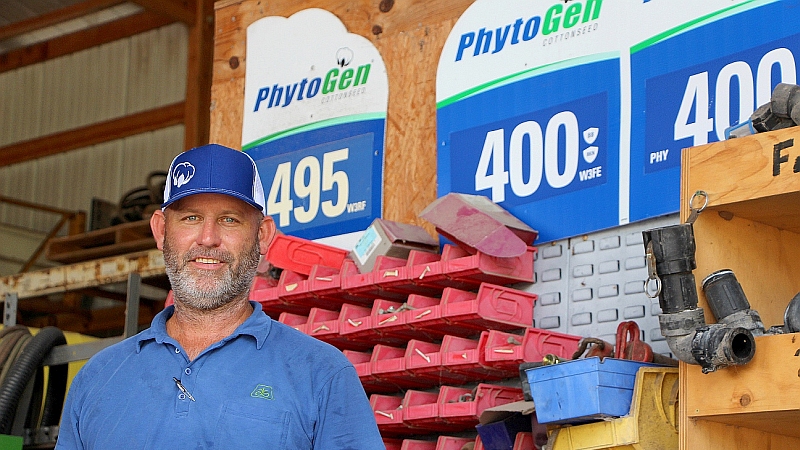Native Traits Bring Big Value to PhytoGen Varieties
Wild weather swings in Texas in 2023 —especially following a historic drought — caught Joel Faircloth a bit off guard. Drought to flooding and back to drought. Growers in some parts of the state just couldn’t get their cotton planted as intended.
“I don’t know that I’ve ever seen Southwest Plains acres move quite as substantially as we saw them move this year,” says Faircloth, U.S. Cotton Portfolio Manager for PhytoGen.
“We do have some early yields in hand from South Texas and the Texas Coastal Bend, and they are exceptional,” he says. “We’ve had many, many folks that have called in across the Cotton Belt recognizing the value of our PhytoGen Breeding Traits, especially for bacterial blight and reniform nematode control.”
Faircloth notes that bacterial blight really blew up in 2023 in some key production areas all across the Cotton Belt, and the company’s reps were inundated with calls from growers to look at how PhytoGen varieties performed amongst other crops susceptible to blight.
“Every PhytoGen W3FE variety is resistant to bacterial blight, and growers really benefited from that this past season. It’s also been three years since we introduced the reniform technology in the marketplace, and growers are really experiencing greatly reduced reniform populations,” he says. “Those growers can farm cotton again instead of fighting reniform nematodes.”
Faircloth highlights three PhytoGen varieties that have performed exceptionally well this season:
- PHY 411 W3FE. “It’s a very broadly adapted variety,” he says, “and the yields we have so far show that it’s performing well in many areas, particularly in Mississippi, and is leading some trials.
- PHY 443 W3FE. “It’s doing well throughout the Southeast. It’s broadly adapted, fits on a marginal or tough acre very well, and produces a plant that can shade those row middles out quickly. It’s a good successor to PHY 499.”
- PHY 360 W3FE. “It’s a very dependable variety that is always going to deliver,” he adds. “It’s done well this year in the North Delta and in the mid-Atlantic. Growers really like it. They can also get it out early to beat hurricanes and other inclement weather.”
Looking at 2024, Faircloth is excited about a potential W3FE variety for the Lower Southeast that’s been with PhytoGen’s Horizon Network growers this year for evaluation. Obviously, no advancement decisions have been made yet, but Faircloth says it looks like a strong performer. The Enlist technology is a strong fit for standard rotation practices in that geography.
“Enlist is the number one technology planted now in soybeans in the U.S., and adoption in cotton is really starting to pick up in the Southeast, the Delta, and in the Southwest as well,” he reports. “It’s recognized as a great technology, easy to use, and it’s very friendly with rotational crops like soybeans and peanuts in particular. Cotton and peanut growers in the Southeast are recognizing that, and it’s a big success for that market.”
When making decisions about the 2024 cropping season, Faircloth advises growers to think about the amount of money they’re spending on inputs and the value that native traits can bring in preserving or utilizing those inputs efficiently to help assure yield potential.
“Growers make an investment in their crop,” he says. “If you’ve made the investment, the native traits are going to help get you there, especially with the bacterial blight and reniform and root knot nematode traits that we offer. Those traits are like standard equipment now in pretty much all PhytoGen varieties.”









